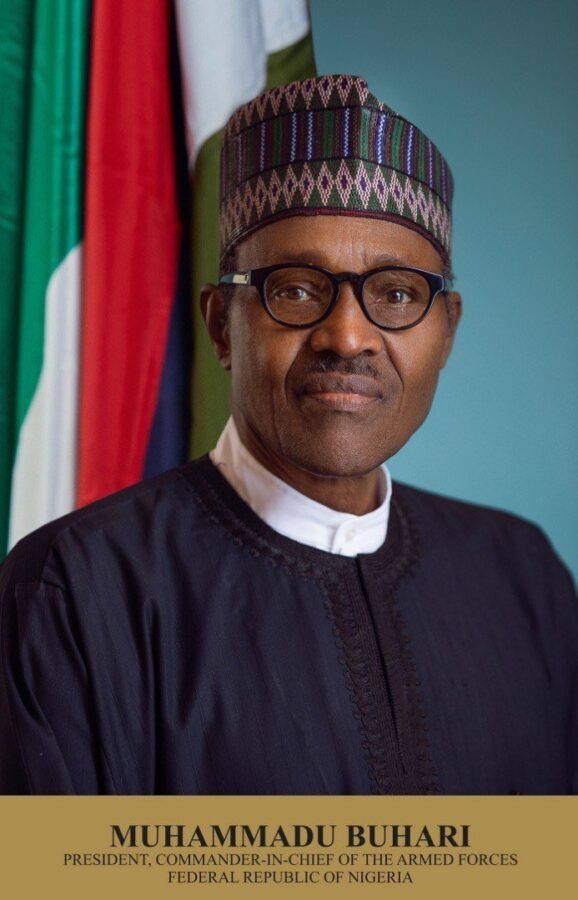National Issues
President Buhari And The Reality Of Poverty Alleviation In Nigeria -By Momoh Emmanuel Omeiza
Poverty is not an abstract term in Nigeria’s lexicon. In fact, both the young and old, the rich and poor can give accurate explanations and analogies to describe this highly dreaded term but which financial analysts have concluded has eaten deep into the nation’s fabric.

“Poverty is a threat to human security anywhere”.
The above quote by Kofi Annan, the seventh Secretary-General of the United Nations, aptly captures the current reality of things in the self-styled appellation of the entity regarded as ” Africa’s Giant”.
President Muhammadu Buhari had yesterday highlighted the commitment of his administration in ensuring that over a million Nigerians are lifted out of poverty. This was sequel to the announcement of an extension in the second of the lockdown occasioned by the Coronavirus by four weeks.
Apparently speaking from the perspective of a financial analyst and in order to fulfill the demands of business planning which proposes the fact that a business plan must be specific, measurable, achievable, realistic and time-bound, the septuagenarian leader who is also an erstwhile cum astute military administrator highlighted the time frame in which he hopes to achieve this plan as a decade.
In the first instance, to define poverty in a country like ours would rather prove to be a herculean task. No thanks to the complex structure as well as the heterogenic threads of language, tribes, religion, and geographical division which were used by colonialists in weaving the fabric of Nigeria’s statehood. This was orchestrated by the amalgamation of the year 1914 which culminated into the independence of 1st October 1960 and the subsequent declaration of the nation as a republican state in 1963 respectively.
However, the definition by Irene Khan, a former Secretary-General of Amnesty International, which says that “poverty is not only about income poverty, it is about the deprivation of economic and social rights, insecurity, discrimination, exclusion, and powerlessness…..” would in all sincerity be useful in judging the current tide and turn of events in Africa’s most populous country.
Poverty is not an abstract term in Nigeria’s lexicon. In fact, both the young and old, the rich and poor can give accurate explanations and analogies to describe this highly dreaded term but which financial analysts have concluded has eaten deep into the nation’s fabric.
While I wouldn’t want to assume the President’s speech was a slip of the tongue. After all, the commander never wavers even when the battle is fierce lest he instills fear into the minds of feeble comrades.
Nonetheless, it as though the mantra of poverty alleviation is a constant sermon which Nigerians are coaxed whimsically and manipulated capriciously to listen to especially during the eve of elections.
Nigerian politicians are quick to use this term as a bait to lure the minds of poor Nigerians towards believing that they have the magic wand of sweeping this seemingly deadly virus off the nation’s borders.
Reality over time has, however, revealed the fact that Nigeria is far from been regarded as a non-poverty stricken state.
From the standpoint of equity, justice, and fairness, it is incongruous and unthinkable for a country to engage in a journey of poverty alleviation when several of its days to day expenses are funded from foreign loans and debts.
We cannot shy away from the fact that several citizens of the country sleep and wake in poverty. This without ado is evident in the life expectancy rate which has over the years dwindled on a downward scale.
Unemployment which seems to be another fuel driving the wheels of poverty is on a large scale. Innumerable thousands of graduates are roaming the streets in search of gainful and profitable jobs to kill the pangs of hunger.
The Federal Government through its Ministry of Humanitarian Services opened a job portal recently to absorb a rather small fraction of these categories of people. From reliable statistics, it is overly bewildering that over a million individuals have enlisted and are jostling for a space of about 400,000 candidates.
The poverty alleviation programme (PAP), the National Poverty Eradication Programme (NAPEP), the seven Point agenda are few of the many strategies put in place by past governments towards “lifting Nigerians” from the pit of poverty.
All these have yielded little or no result as reports and observations from the National Bureau of Statistics reported on the website of Al-Jazeera on the 4th of May 2020, revealed that more than 82 million Nigerians live on less than $1 a day.
Nairametrics and the British Broadcasting Corporation (BBC) had reported similar news zoning the headquarters of the situation to the Northern part of the country.
A concrete report by the World Poverty Clock also revealed that Nigeria has overtaken India as the country with the Most extremely poor people around the globe. It is therefore wishful thinking for Nigeria to achieve the contents of the United Nations agreement drafted in the Sustainable Development Goals especially in the aspect of poverty alleviation.
Thus, President Buhari and his assumed team of experts and economic advisers undoubtedly have a long way to travel as their plan to nipping poverty in the bud is in the opinion of Nelson Mandela, “not a gesture of poverty, but an act of justice, protection of fundamental human rights, the right to dignity and a decent life”.
All hands must, therefore, be on deck! This according to the World Economic Forum entails investing in the girl child education, investing in health and well-being, and ultimately expanding economic opportunities and embracing technology.
















